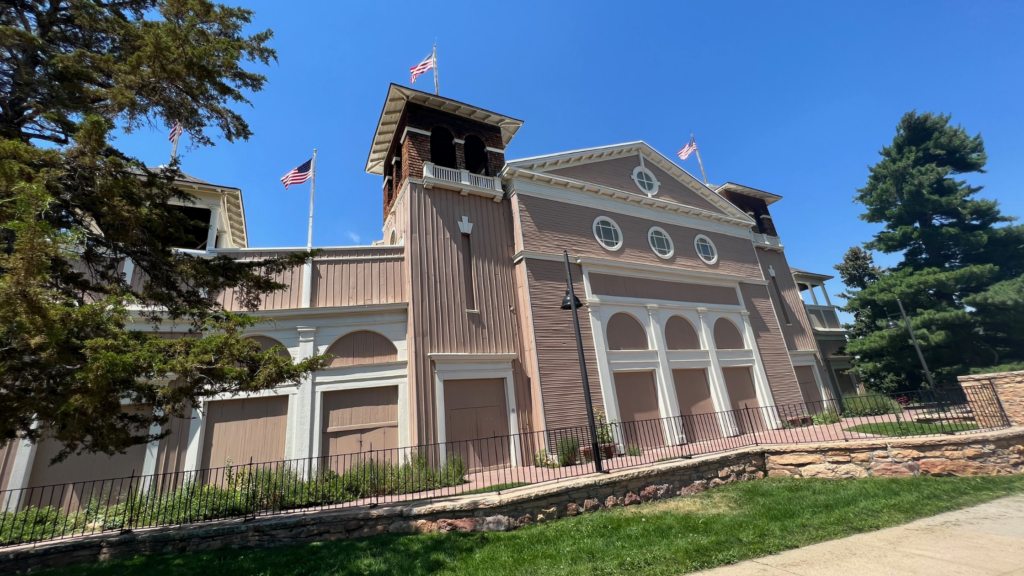Your Ultimate Guide to Fall Events in and Around Boulder 2024
As the leaves start to change and the air turns crisp, Boulder comes alive with a variety of fall events that celebrate the season. Whether you’re a local or planning a visit, there’s something for everyone to enjoy this fall. From vibrant festivals and farmer’s markets to exciting concerts and showcases, here’s your ultimate guide to the best fall events in and around Boulder for 2024.
Handmade in Colorado Expo
Dates & Locations:
August 23 – 25, 2024 Estes Park – Bond Park is located on MacGregor Ave and Elkhorn Avenue, the main street in the center of Downtown Estes Park.
September 14 & 15, 2024 Downtown Denver –Wynkoop Plaza at Denver Union Station
September 28- 29, 2024 Glenwood Springs – Bethel Plaza and 7th Street, Glenwood Springs, CO
October 4 & 5, 2024 The Vail Village – Vail, CO
This juried event showcases Colorado’s finest artists and craftspeople, featuring handcrafted goods across various media. Enjoy free admission, local live music, and unique shopping experiences in Estes Park, Denver, Glenwood Springs, and Vail Village over four weekends.
More info: Handmade in Colorado Expo
Royal Gorge Oktoberfest
Dates: September 7th through October 27th aboard the 12:30 Lunch Train, 3:30 Afternoon Train and 6:30 p.m. Dinner Train
Location: Royal Gorge Railroad, Canon City, CO
Celebrate Oktoberfest aboard the scenic Royal Gorge Route Railroad. Choose your class of service and add a special Oktoberfest entrée to your journey, featuring authentic German bratwurst with sauerkraut, spaetzle, and more. Enjoy stunning views of the Royal Gorge from a glass-domed car, deluxe seating, or classic coach class, and take in the scenery from the open observation car. Prost!
More info: Royal Gorge Oktoberfest
Free Days in Denver: Denver Museum of Nature & Science
Dates: Tuesday, Sept. 10- Free Night 3-9 p.m. and Monday, Sept. 30- Free Day 9 a.m. – 5 p.m.
Location: Denver Museum of Nature & Science, Denver, CO
Explore science for free on SCFD Free Days and Free Nights! No need to reserve tickets in advance—just walk in and enjoy access to the Wildlife Halls and permanent exhibitions. A separate ticket is required for the planetarium and the new Infinity Theater. Funded by the voter-approved SCFD, these free days are made possible by a small sales tax that supports over 300 cultural organizations in the metro area.
More info: DMNS Free Days
Buffalo Bicycle Classic
Dates: September 8, 2024
Location: Boulder Canyon, Boulder, CO
More than just a bike ride, this event is Colorado’s largest scholarship fundraiser. Since 2003, it has raised over $3.9 million for scholarships, helping more than 450 students graduate from CU. Join the ride and make a difference!
More info: Buffalo Bicycle Classic
The Sunnyside Music Festival
Dates: September 14, 2024
Location: Chaffee Park, Denver, CO
This volunteer-run, nonprofit festival brings the community together with free, family-friendly music. Enjoy local bands, artisans, and businesses while supporting youth organizations through year-round programming.
More info: The Sunnyside Music Festival
Downtown Boulder Fall Fest
Dates: September 13-15, 2024
Location: Pearl Street Mall, Boulder, CO
Kick off the fall season with the Boulder Fall Fest, a beloved community event that takes over Pearl Street Mall with live music, local artisan booths, and delicious food vendors. This family-friendly festival features activities for kids, a beer garden for adults, and a fantastic selection of arts and crafts. Enjoy a weekend of entertainment while soaking up the vibrant fall atmosphere.
More info: Boulder Fall Fest
Snowmass Balloon Festival
Dates: September 13-14, 2024
Location: Snowmass Town Park, Aspen/Snomass, CO
The Snowmass Balloon Festival returns for its 49th year, featuring over 30 colorful balloons launching into the sky on Saturday and Sunday mornings, with the popular Night Glow event on Friday evening. Although the Balloon Festival grounds are closed on Friday morning for the Memorial Rat Race, you can still enjoy the view from nearby hiking and biking trails. After taking in the spectacle, explore the Snowmass Mall or Base Village for a delicious breakfast or brunch.
More info: Snomass Balloon Festival
Denver Oktoberfest
Dates: September 20-22, 2024
Location: Pueblo, CO
Celebrate Pueblo’s rich agricultural heritage with live entertainment, cooking competitions, street vendors, and a focus on local chilies! Held downtown on Union Avenue, this festival draws visitors from across Colorado and beyond for a spicy taste of Pueblo.
More info: Pueblo Chile Festival
Chile and Frijoles Festival
Dates: September 20-22, 2024
Location: Pueblo, CO
Celebrate Pueblo’s rich agricultural heritage with live entertainment, cooking competitions, street vendors, and a focus on local chilies! Held downtown on Union Avenue, this festival draws visitors from across Colorado and beyond for a spicy taste of Pueblo.
More info: Pueblo Chile Festival
La Junta Tarantula Fest
Dates: September 27-28, 2024
Location: La Junta, CO
Each fall, male tarantulas in La Junta and southeast Colorado participate in a fascinating mating ritual across the Comanche National Grassland. Don’t miss this unique opportunity to witness these creatures in action!
More info: La Junta Tarantula Fest
2024 Mountain Harvest Festival
Dates: September 27-29, 2024
Location: Paonia, CO
Celebrate local music, art, farms, and food in the charming town of Paonia. Organized by the North Fork Valley Creative Coalition, this festival features free music performances, arts and crafts, a chili cookoff, farm tours, and a pub crawl. Experience small-town Americana at its best!
More info: The 2024 Mountain Harvest Festival
Estes Park Elk Fest
Dates: September 28-29, 2024
Location: Estes Park, CO
Located just a short drive from Boulder, Estes Park’s Elk Fest celebrates the majestic elk that roam the area during the fall rutting season. The festival features live music, Native American storytelling and music, a bugling contest, and plenty of activities for kids. Attendees can also enjoy local food vendors, craft booths, and educational seminars on elk ecology and behavior.
More info: Estes Park Elk Fest
Colorado Chautauqua Community House Concert Series
Dates: Various dates throughout October and November 2024
Location: Chautauqua Auditorium, Boulder, CO
The Colorado Chautauqua Concert Series offers an unforgettable live music experience in one of Boulder’s most historic venues. As the weather cools, enjoy a lineup of concerts featuring a range of genres, from folk and rock to classical and jazz. With stunning views of the Flatirons and a unique, intimate setting, these concerts are a highlight of Boulder’s fall cultural scene.
More info: Colorado Chautauqua Concert Series
Pumpkin Nights at Denver Botanic Gardens Chatfield Farms
Dates: October 1-31, 2024
Location: Chatfield Farms, Littleton, CO
Take a trip to Chatfield Farms for Pumpkin Nights, an immersive Halloween experience featuring over 5,000 hand-carved pumpkins, pumpkin sculptures, and light displays. The event includes a corn maze, hayrides, and plenty of photo opportunities, making it a perfect outing for families or a fun date night.
More info: Pumpkin Nights
Miner’s Pumpkin Patch
Dates: October 5, 12,19, 26, 2024
Location: Western Museum of Mining and Industry, Colorado Springs, CO Enjoy fall fun while supporting the Western Museum of Mining and Industry! Activities include a children’s straw maze, corn bins, hayrides, gold panning, mining machine demonstrations, pumpkin catapulting, and more. Don’t miss the food trucks, games, and the best pumpkin patch around for unforgettable family memories.
More info: Western Museum of Mining & Industry
Cedaredge Applefest
Dates: October 4-6, 2024
Location: Cedaredge, CO
Celebrate the flavors of Cedaredge with live music, art, food vendors, a chili cookoff, antique car show, pinup competition, 5K run, and more! Featuring over 200 vendors and drawing 30,000 attendees, this community event showcases local businesses, orchards, artists, and musicians. Don’t miss out on this unique festival!
More info: Cedaredge Applefest
The Great American Beer Fest
Dates: October 10 – 12, 2024
Location: Denver, CO
Great American Beer Festival: The largest beer festival in the U.S. is back with three sessions and a new layout featuring themed areas like a German biergarten, a sports escape, a Halloween experience, and more. Enjoy a variety of beverages, including craft beers, ciders, and canned cocktails, plus live entertainment, interactive activities, and expert-led seminars. Don’t miss this celebration of all things beer!
More info: The Great American Beer Fest
The Telluride Horror Show
Dates: October 11 – 13, 2024
Location: Telluride, CO
Returning for its 15th edition, this top genre film fest brings the best horror, thriller, dark fantasy, and sci-fi films to the scenic mountain town of Telluride. Enjoy three days of premieres, special programs, and events in a unique setting. Don’t miss Colorado’s longest-running horror film festival!
More info: The Telluride Horror Show
Poudre Pour Arts & Culture Fest
Dates: October 12, 2024
Location: Chatfield Farms, Littleton, CO
Celebrate the rich history of our river corridor with this annual festival featuring live music, performances, visual and culinary arts, and interactive exhibits. This year’s theme honors Hispanic Heritage Month with music from Los Martinez Bros and Presidio, dance lessons, traditional performances, artisan demos, and hands-on activities. Enjoy tastings from local craft brewers and explore the Windsor History Museum during this vibrant community event.
More info: Poudre Heritage
Boulder and the surrounding areas offer an exciting array of events that make the most of the beautiful fall season. From outdoor festivals and cultural showcases to culinary delights and family-friendly activities, there’s no shortage of things to do. Mark your calendars and enjoy everything Colorado has to offer this fall!












